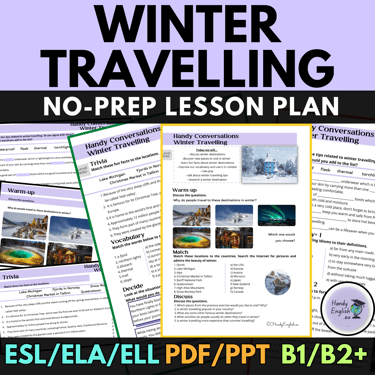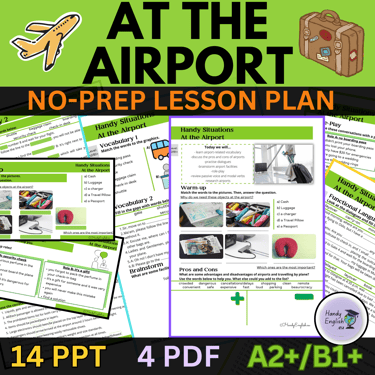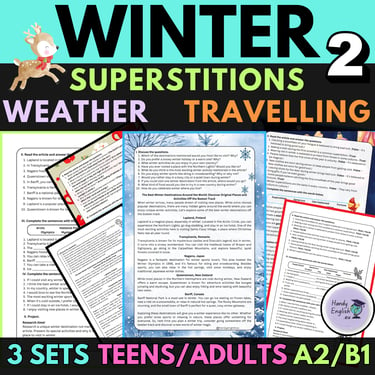[BLOG] Teaching Adults: Strategies and Insights #6 - Encouraging Lifelong Learning in Your Students
Learn how to inspire adult English learners to embrace lifelong learning by connecting lessons to their passions, celebrating real-world wins, and teaching them how to learn beyond the classroom.
Kaya
9/5/2025
Please keep in mind that the opinions posted on this blog are my own.
Everybody might have a different experience and opinions, and that's OK.
One of the most rewarding parts of teaching adults is watching them move beyond the idea of “taking a course” and into the mindset of “learning as a lifelong habit.” My goal is never just to get them through a set of lessons - it’s to light a spark that keeps them curious long after they leave my classroom. For adults, this shift often happens when they see that learning isn’t confined to a book, a teacher, or a timetable. It can fit into their daily lives and grow with them.
Connect Learning to Their Passions
Adults are much more likely to keep learning if it aligns with something they love. A football fan might be motivated to read match reports in English, while a travel enthusiast could listen to destination podcasts. If I know a student enjoys cooking, I’ll suggest they follow English-language recipes or watch cooking shows. When language learning overlaps with personal interests, it stops feeling like “study time” and becomes something they look forward to - and that’s when it sticks.
Emphasise Real-World Wins
One of the best ways to keep adults motivated is to help them notice and celebrate small but meaningful successes. It could be ordering coffee in English without hesitation, successfully negotiating with a client, or even just understanding a joke in a TV show. These moments build confidence and reinforce the value of their effort. I make a point of getting them to share these wins in class - the excitement is contagious, and it reminds everyone that progress isn’t measured only by test scores.
Teach Them How to Learn, Not Just What to Learn
Many adults think that learning English means memorizing word lists and doing grammar drills. I try to expand that view by showing them different ways to absorb language, from listening to audiobooks on their commute to joining online discussion groups or keeping a short daily journal. Once they discover learning methods that match their lifestyle, they’re more likely to keep going without the structure of formal lessons. In a way, I’m teaching them to become their own teacher.
Encourage a “Little and Often” Approach
A common barrier for adults is the belief that they need huge blocks of time to make progress. I always remind them that consistency matters more than intensity. Ten minutes of focused English every day can do more for fluency than a single two-hour session once a week. This approach feels less overwhelming and helps them integrate learning into their routine - it becomes as natural as brushing their teeth or checking their messages.
Build a Culture of Curiosity in the Classroom
When students feel safe to ask questions, share ideas, and explore topics beyond the lesson plan, they’re more likely to develop a habit of seeking knowledge. I often bring in articles, videos, or debates that aren’t strictly on the syllabus but spark interesting conversations. Adults bring such a variety of life experiences into the room - an insurance agent might offer insights during a roleplay that make a CEO think differently about communication. This exchange of perspectives not only improves language skills but also fuels that curiosity to keep learning outside of class.
Model Lifelong Learning Yourself
I can’t expect my students to be curious if I’m not. I share the fact that I’m constantly reading, learning new teaching techniques, and even picking up bits of other languages. Sometimes, I’ll tell them about a new word I just learned or a mistake I caught myself making - it shows them that learning is a continuous process, even for the teacher. And it quietly sends the message: “If I’m still learning, you can too.”
Encouraging lifelong learning in adult students is about helping them see English not as a subject to complete, but as a skill that enriches their entire life. By tying lessons to their passions, celebrating real-world wins, and giving them the tools to learn independently, we set them up for growth that continues long after our classes end.






Get in touch!
Copyright Handy English 2021
”I used this with an adult ELL tutee of mine. I appreciate that the language was accessible for multiple proficiency levels, but the content wasn't obviously geared for children and still useful for older learners.”
August 7, 2023
”Another great resource from Handy English! I used it to give my students more in-depth practise into quantifiers and restaurant language. It's great resource and can be used after the students learn the basics of language for the restaurants and quantifiers. Definitely helped solidify what they learnt.”
February 5, 2023
”Love this resource. Great for fast finishers and also those in small ESL groups. Great for all macro skills as discussion and brainstorming is a great precursor for writing submissions.”
- Gail M.
June 25, 2023
Here's what other ESL Teachers say
Handy English: 4.8/5
”This was a wonderful resource for my students. It helped me introduce them easily to new concepts and it was quite engaging. Thanks!”
- Kiara B.
October 10, 2023
”Great resource for learning vocabulary, which supports comprehension and speaking skills.”
- Lori-Ann W.
September 29, 2023
”What a great way to get a healthy debate going. My students struggle with impulse control and they all have kept it kind and appropriate.”
- Alicia H.
September 17, 2023






